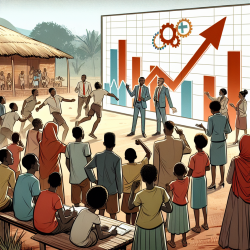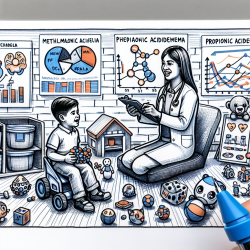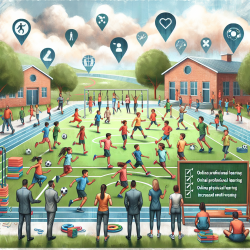Introduction
In the realm of speech-language pathology and therapy services, data-driven decisions are crucial for creating impactful outcomes, especially for children. As practitioners, our goal is to harness evidence-based practices to enhance our skills and improve the lives of those we serve. A recent study titled Feasibility and acceptability of a peer youth led curriculum to improve HIV knowledge in Northern Tanzania: resilience and intervention experience from the perspective of peer leaders provides valuable insights that can be applied to our practice. This blog explores how the findings of this study can be leveraged to enhance practitioner skills and encourage further research.
Understanding the Study
The study conducted in Northern Tanzania aimed to assess the feasibility and acceptability of a peer youth-led (PYL) HIV curriculum. It focused on improving HIV knowledge among youth living with HIV (YLWH) and examined the impact of leadership roles on peer leaders. The curriculum was integrated into routine adolescent HIV clinics, and data were collected using mixed methods, including fidelity checklists, pre- and post-knowledge assessments, and resilience scales.
Key Findings
- Feasibility and Acceptability: The study demonstrated high fidelity to the curriculum, with peer leaders completing 96% of activities. Participants showed a preference for peer-led sessions, indicating the acceptability of the approach.
- Improvement in Knowledge: Participants' knowledge improved in nine out of ten sessions, highlighting the effectiveness of the PYL curriculum in enhancing HIV knowledge.
- Resilience and Leadership: Peer leaders reported improved leadership confidence and resilience, with a mean increase of 3.8 points on the Connor Davidson Resilience Scale.
Implications for Practitioners
The findings from this study offer several implications for practitioners in speech-language pathology and therapy services:
- Peer-Led Interventions: Incorporating peer-led models can enhance engagement and knowledge retention among youth. Practitioners should consider integrating peer-led approaches in their interventions to foster a supportive learning environment.
- Focus on Resilience: Building resilience is crucial for youth facing health challenges. Practitioners can develop programs that not only address the specific needs of their clients but also focus on enhancing resilience and leadership skills.
- Addressing Stigma: The study highlights the ongoing challenge of stigma. Practitioners should work towards creating interventions that normalize health conditions and reduce stigma, thereby improving the psychosocial well-being of their clients.
Encouraging Further Research
While the study provides promising results, it also underscores the need for further research. Practitioners are encouraged to explore the following areas:
- Long-term Impact: Investigate the long-term effects of peer-led interventions on knowledge retention and psychosocial outcomes.
- Cross-Cultural Adaptations: Examine how peer-led models can be adapted to different cultural contexts to maximize their effectiveness.
- Integration with Other Interventions: Explore the potential for integrating peer-led models with other therapeutic interventions to enhance overall outcomes.
Conclusion
The study on peer youth-led interventions in Northern Tanzania offers valuable insights for practitioners seeking to improve their skills and outcomes for children. By embracing peer-led models, focusing on resilience, and addressing stigma, practitioners can create more effective and supportive interventions. To read the original research paper, please follow this link: Feasibility and acceptability of a peer youth led curriculum to improve HIV knowledge in Northern Tanzania: resilience and intervention experience from the perspective of peer leaders.










